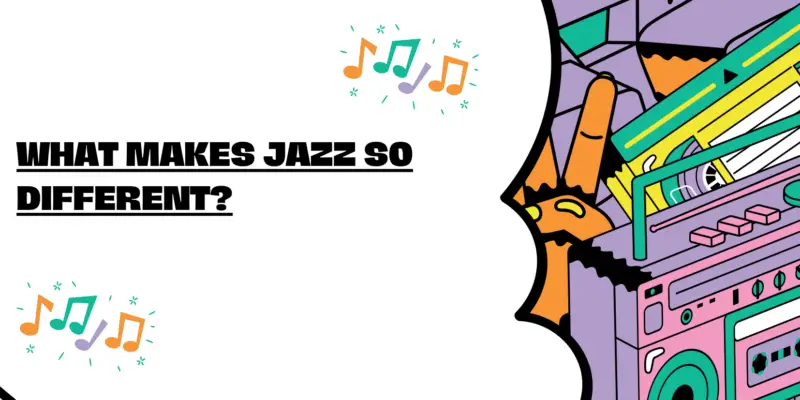Jazz, with its distinctive sound and improvisational nature, stands apart as a genre that defies easy categorization. Rooted in the African American communities of New Orleans in the early 20th century, jazz has evolved into a musical form that continues to captivate audiences worldwide. In this article, we explore what makes jazz so different and why it holds a special place in the world of music.
- Improvisation: The Heart of Jazz
One of the defining features of jazz is its emphasis on improvisation. Musicians in a jazz ensemble often take turns creating spontaneous melodies and harmonies, adding their unique voice to the composition. This improvisational element infuses jazz with a sense of surprise and individuality, making each performance a one-of-a-kind experience. Jazz musicians are like musical storytellers, weaving narratives with their instruments, and this element of unpredictability distinguishes jazz from many other genres.
- Syncopation and Rhythmic Complexity
Jazz is known for its intricate rhythms and syncopation, where beats and accents fall in unexpected places. This rhythmic complexity creates a sense of groove and movement that is distinctive to the genre. Drummers and percussionists in jazz bands play a crucial role in driving the rhythm, often engaging in complex polyrhythms that challenge the listener’s sense of time. It’s this intricate layering of rhythms that gives jazz its unique pulse and energy.
- Harmonic Innovation
Jazz is a genre that continually pushes the boundaries of harmony. Musicians explore extended chords, altered harmonies, and unconventional chord progressions. This harmonic innovation creates a rich tapestry of sounds and textures that can be both challenging and rewarding for listeners. Jazz’s willingness to venture into uncharted harmonic territory sets it apart from more formulaic musical forms.
- A Diverse Range of Styles
Jazz is not a monolithic genre but rather a musical umbrella that encompasses an incredible diversity of styles. From the exuberance of swing to the intellectual complexity of bebop, the soulful expressions of blues, the fusion of rock and jazz, and the smooth sounds of contemporary jazz, the genre spans a wide spectrum of musical approaches. This diversity means there’s a jazz style for virtually every musical taste.
- Cross-Cultural Influences
Jazz is inherently open to cross-cultural influences. It has absorbed elements from various musical traditions, including African, European, Caribbean, Latin American, and more. This melting pot of influences contributes to jazz’s unique character. For instance, Latin jazz blends Afro-Cuban rhythms with jazz improvisation, resulting in a fusion that’s distinctly different from other jazz styles.
- The Human Element
Jazz is a deeply human art form, rooted in personal expression and storytelling. It often reflects the experiences, emotions, and social issues of the musicians and their communities. This human element resonates with listeners on a profound level, allowing them to connect with the music in a deeply personal way. Jazz has the power to convey joy, sorrow, resilience, and hope through its emotive performances.
Conclusion
Jazz’s distinctiveness lies in its commitment to improvisation, rhythmic complexity, harmonic innovation, diverse range of styles, cross-cultural influences, and the deeply human element that permeates every note. These qualities combine to make jazz a genre that continually challenges and inspires both musicians and listeners. Jazz is a living testament to the boundless creativity and adaptability of music, and its enduring allure is a testament to its capacity to evoke a wide range of emotions and captivate those who appreciate its unique charms.


